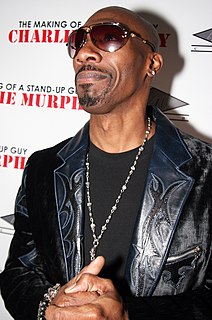A Quote by Bernie Sanders
I think the war in the Mideast, how we got into it and how we're going to address the current problems, are issues that every American should be concerned about.
Related Quotes
I think I've learned a lot about how to make movies, and particularly about how to edit movies by thinking about how similar problems are resolved in other forms. The issues in all forms are the same in an abstract sense, aren't they? Characterization, abstraction, metaphor, passage of time... Whether it's a movie, a novel, a play, or a poem, those issues exist. And each person resolves them differently.
What sensible people have got to do is not simply repeal the Affordable Care Act without any alternative, but you've got to sit down and say it's OK, what are the problems. How do we address it? How do we move to universal health care? How do we lower prescription drug costs? How do we make sure that people don't have outrageous deductibles? You just don't throw 20 million people off of health insurance. You don't privatize Medicare.
I think that every educator, indeed every human being, is concerned with what is true and what is not; what experiences to cherish and which ones to avoid; and how best to relate to other human beings. We differ in how conscious we are of these questions; how reflective we are about our own stances; whether we are aware of how these human virtues are threatened by critiques (philosophical, cultural) and by technologies (chiefly the digital media). A good educator should help us all to navigate our way in this tangled web of virtues.
I try to be aware of what I'm concerned about, aware of how I feel about myself in the world, aware of how I feel about the issues of the day, but I guess I don't want to write essays in my head about my craft and maybe it's because I teach and talk about craft of other writers as a reader. I feel the moment I start doing that is when it's going to kill me.
When I talk about how we're going to pay for education, how we're going to invest in infrastructure, how we're going to get the cost of prescription drugs down, and a lot of the other issues that people talk to me about all the time, I've made it very clear we are going where the money is. We are going to ask the wealthy and corporations to pay their fair share.
When people come to you with problems or challenges, don't automatically solve them. As a mama bear, you want to take care of your cubs, so you tend to be protective and insulate them against all those things. But if you keep solving problems for your people, they don't learn how to actually solve problems for themselves, and it doesn't scale. Make sure that when people come in with challenges and problems, the first thing you're doing is actually putting it back to them and saying: "What do you think we should do about it? How do you think we should approach this?".
My career was always about working with people, and understanding issues and problems and helping them to solve those issues and problems. How you deal with people - that's what diplomacy is all about. So while I'm not a career diplomat, many of the skills I had seemed to directly translate into the diplomatic arena.
How do we address network neutrality when the whole world is connected? How do we ensure governments don't purloin this for political purposes? It's already happening. Look at Russia on the American election. How do we protect data security when everyone's connected? Look what happened with the ransomware. How do we deal with cybercrime and cyberterrorism and the disruptions of the system? And we're seeing this every week now.
I don't think that Mitt Romney can legitimately say that he learned anything about how to create jobs in the LBO (leveraged buyout) business. The LBO business is about how to strip cash out of old, long-in-the-tooth companies and how to make short-term profits. All the jobs that he talks about came from Staples. That was a very early venture stage deal. That, you know they got out of long before it got to its current size.
































